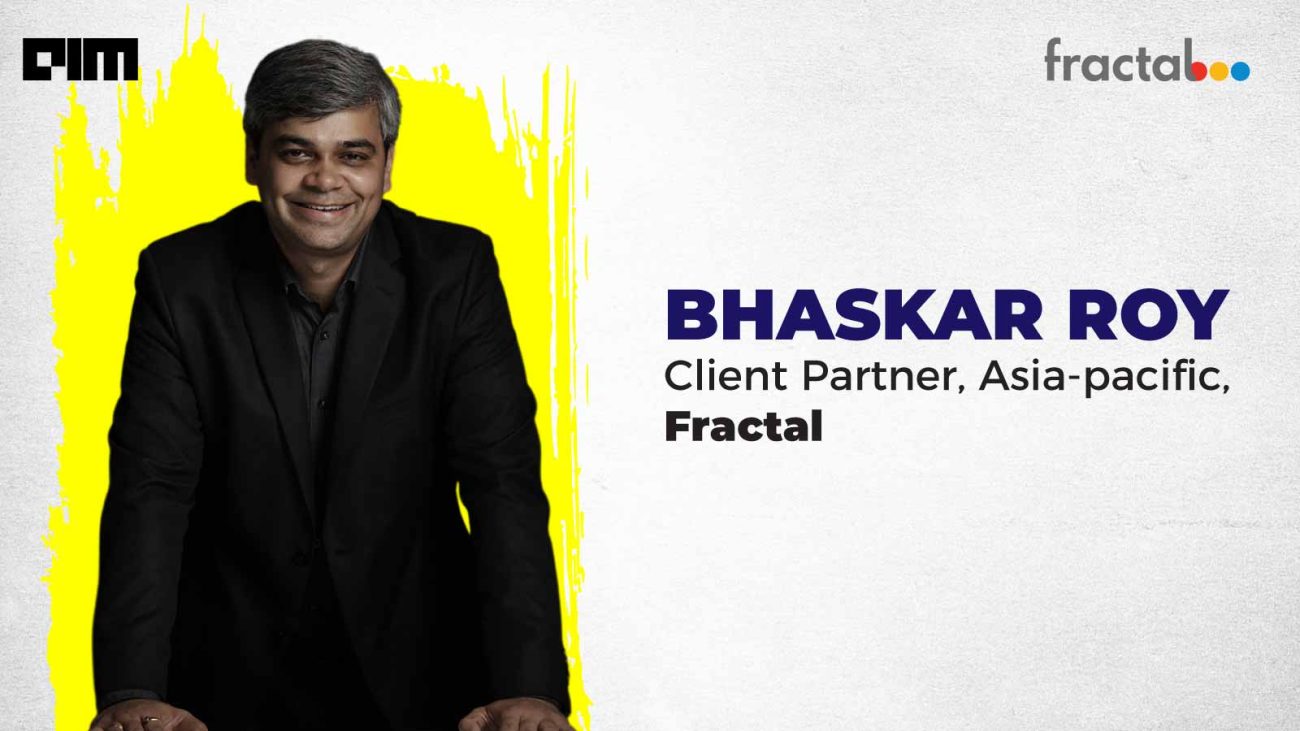Does the quest for sustainability put a dent in tech innovations? Are they mutually exclusive or symbiotic? With the climate crisis looming large, more and more companies are adopting the ESG (environmental, social, and corporate governance) framework to push for sustainable innovation.
Analytics India Magazine caught up with Bhaskar Roy, Client Partner, Fractal, to understand the relationship between innovation and sustainability in business enterprises.
AIM: Where do companies stand on sustainability and innovation?
Bhaskar Roy: Sustainability of innovation is absolutely crucial, especially with respect to the consumer goods side. While users themselves are insisting on the sustainability of products, as we talk more about technology-led innovation, a dichotomy emerges:
- Is tech needed to push innovation further to become best-in-class, or do we need to scale back to reduce the environmental impact?
The key question to ask here: Is innovation driving the overall betterment of society?
For example, there is qure.ai that is leveraging AI in the area of medical diagnosis. This ensures better lives for a lot of people. So, in this case, innovation takes precedence over the environmental factor.
AIM: How can innovation and ESG go hand in hand?
Bhaskar Roy: Technology and sustainability are joined at the hip, and they do try to diverge; we have to find ways to make them work together. Many companies are trying to embed sustainability in their innovations, but most of these efforts are driven by regulations.
Recently, a few companies have been stepping forward and declaring their goals with respect to sustainability. For example, one of our clients came to us saying they would like to bring down their emissions by 50 per cent; they plan to achieve this using data and AI. In addition, the client realised that doing business sustainably is good in the longer run. So this is a good trend.
AIM: How does data help in driving efforts on ESG?
Bhaskar Roy: There are a few key steps that an organisation can take when it comes to sustainability, each intrinsically linked to data:
- Understanding what you (the company) are doing today with the available data
- Understanding where you stand vis a vis others in similar situations.
- The next step is to standardise and do a lot of simulation to understand where things are going to end. This Standardisation is happening on different levels. Level one1 is about the data you are collecting, followed by how you report the collected data, and the last level is the presentation of the data.
Further, emissions under ESG are defined as:
- Scope 1: This includes the emission generated directly from the activities the industry is engaged in. The major concerns are operating cost, equipment cost, and the facility.
- Scope 2: This includes the upstream activities the company leverages
- Scope 3: These involve indirect emissions and form the largest chunk.
A company needs first to understand its emissions and what category they fall under. This gives a sense of where you are currently and which direction you should be headed. Unfortunately, companies sometimes go on their data journey without considering these aspects – ending up either collecting the wrong data or incomplete data.
AIM: On the one hand, big data is considered detrimental to the environment, but now, there are big data-based innovations driving sustainability. Your thoughts/views?
Bhaskar Roy: The duality of data is real, and it is happening. A lot of energy is spent storing and processing big data. Companies need to be innovative to solve these problems. Speaking of data centres, they are the largest electricity and CO2 emitters consumers. In the next 3-4 years, 20 per cent of the power supply will go to the data centres.
Companies can find innovative solutions to cut down on energy consumption and other costs. For example, a leading cloud company is experimenting with putting their data centre underwater and cutting down completely on extra power usage for cooling needs.
Many companies are using AI to understand when certain systems need to be up and when they need to be down to bring down power consumption and drive efficiency.
AIM: Do you think policy-mandated sustainable and governable innovation is the way forward?
Bhaskar Roy: Typically, whenever there is a big change, it starts with governance or policy mandate. But for it to be scalable or have a real impact, it should be self-driven. Companies realise that to do their business efficiently, they need to reduce their overall CO2 emissions. The change of strategy is also because of the fact that now an average consumer is a lot more environmentally conscious.
Companies are bringing in experts to achieve this. Over the last few years, we have seen organisations nominating chief sustainability officers whose clear mandate is to drive sustainability efforts at the organisation.
AIM: Lots of experts believe a greater focus on ESG may hinder innovation. What are your thoughts?
Bhaskar Roy: Yes and no. It is restrictive if you look at it in the short term. But, from a long term lens, it’s no hindrance. There is a growing conversation around making work more ethical and sustainable. It should be more personal. For this, people need to be encouraged to come up with ideas.


























